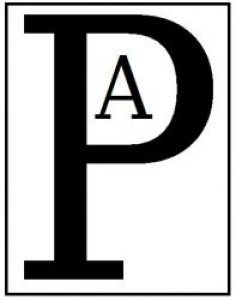
Competing at the Olympic Games is the hight of every professional athlete´s career. Using this event for self-marketing purposes would be the natural consequence. The International Olympic Committee sees this differently and is limiting the use of social media and other advertising options for participating athletes. The German Federal Cartel Office (FCO) has stepped in (again) and strengthened the self-marketing options for German athletes and their sponsors.
Pathing the way for Team Germany
As our regulars probably know, the intersection between antitrust and sports can be quite delicate (as you can read for example here and here). The FCO seems to be a big fan of the German Olympic Team and is therefore working hard on continuously securing the self-marketing options for German athletes.
Everything began in 2017, when the FCO started administrative proceedings against the German Olympic Sports Confederation (Deutscher Olympischer Sportbund, DOSB), the International Olympic Committee (IOC) and Rule 40 No. 3 of the Olympic Charter. This maybe not commonly known rule sets out advertising restrictions during the Olympic Games. While the rule is established on a global level, it is implemented by national Olympic associations via guidelines.
At the time, the FCO preliminarily found that the rule is too restrictive and could constitute an abuse of a dominant position. The FCO took into account that “athletes as the performers in the Olympic Games do not benefit directly from the very high advertising revenues generated by the official Olympic sponsors.”
After the FCO raised concerns, the DOSB and IOC proposed to relax the restrictions exclusively for Germany and the FCO carried out a market test regarding this offer.
The FCO as an influencer
After some back and forth, the FCO agreed with the IOC and DOSB on binding commitments. These commitments further broadened the advertisement options for German athletes and their sponsors and granted the FCO monitoring powers.
The changes included, e.g., a smaller and (unlike before) exhaustive list of prohibited Olympic terms, resulting in athletes being allowed to use terms such as “medal”, “gold”, “silver” or “bronze”, and also being permitted to combine certain social media contents with messages of greeting or thanks to their sponsors. These rules apply until the end of the Olympic Games 2026, the end of the so-called “frozen period”.
The commitments applied only to the German team. But following the FCO proceeding, the IOC amended Rule 40, allowing all athletes globally to take advantage of sponsorship opportunities under specific circumstances, although the national Olympic committees decide for their athletes how the rule is implemented in practice.
Nevertheless, and almost in time for the Olympic Games 2020 in Tokio, the agreement in Germany did not go unnoticed by athletes in other jurisdictions. In the UK, a group of athletes threatened court proceedings over the British Olympic Association’s (BOA) allegedly anticompetitive interpretation of Rule 40. The athletes were successful in getting the BOA to introduce new Rule 40 guidelines. Other jurisdictions like the United States of America also adopted major changes to Rule 40 on sponsorship.
FCO strikes again for Paris in 2024
For the Olympic Games 2024 in Paris, the IOC released its official Social and Digital Media Guidelines, which further loosens Rule 40. All athletes are now permitted to post up to two minutes long videos – which can explicitly not be live or AI-generated – from places or events like the Olympic Village or the opening and closing ceremony. The guidelines also contain specific rules for accredited individuals other than athletes.
As the FCO was granted monitoring powers in 2019 by the DOSB and the IOC, it is unsurprising that the authority has continued to exercise them. As a result of the FCO’s monitoring (so the FCO claims), German athletes have better self-marketing options for the upcoming Olympic Games. The new DOSB guidelines are, in particular regarding the use of social media, more relaxed than the IOC´s rules. The DOSB also released illustrative examples to simplify the application of the guidelines. These rules will apply until the end of the Olympic Games 2026.
One can remain curious if the new changes and further loosening of the Rule 40 regulations will influence other jurisdictions again. Either way, we are wishing every athlete fantastic Olympic Games and are looking forward to some memorable pictures and videos!
Photo by Bryan Turner on Unsplash
